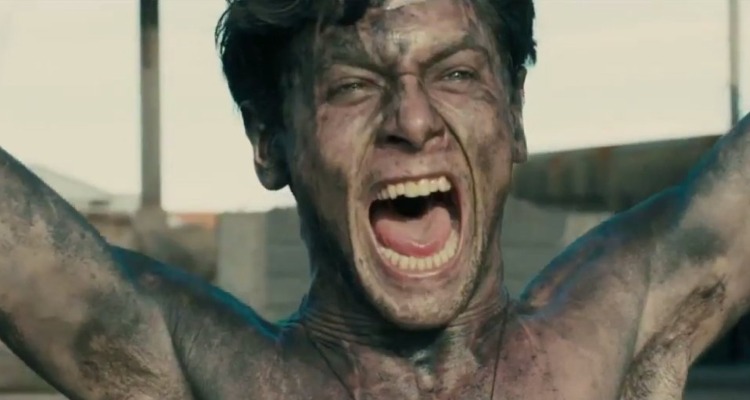 (2.5 / 5)
(2.5 / 5)
War stories tend to have two major themes: man’s inhumanity to man and/or the triumph of the human spirit.
While plenty of films in recent years have focused on the later, most recently Fury, it’s been a while since we’ve had an account of unvarnished heroism. Enter Angelina Jolie with Unbroken.
Based on the real-life experiences of US Olympic runner Louie Zamperini, portrayed here by ’71‘s Jack O’Connell, Unbroken recounts his period as a bombadier in the South Pacific during World War Two, his 47 days spent lost at sea, his mistreatment as a Japanese POW, and his eventual return home. With Joel and Ethan Coen on scripting duties and legendary cinematographer Roger Deakins on board, suffice to say the film gets off to a flying start – heights, though, it sadly it cannot maintain.
Louie’s journey through the war can be broken down into air, sea, and land. The air scenes are shot with a sense of openness and space; even the B-24 bomber seems roomy. It’s in this environment we first get to know Louie, though he seems less a person than a composite of admirable traits: brave, determined, caring. Flashbacks to his rise to his troubled childhood suggest an individual catalyzed by competition but there’s no sense of this conflict within the grown-up Louie; in fact, he’s remarkably well-balanced.
While the supporting cast are more than able – particularly Domnhall Gleeson and Finn Wittrock who make an impact as Louie’s fellow castaways – Unbroken is O’Connell’s film, though even he is at the mercy of recorded history AKA the plot. After all those sun-burnt, shark-beating, ocean-bound days, Louie arrives at his penultimate destination: the Ōfuna internment camp. It’s here the film transitions from a semi-realist Life of Pi to Bridge Over the River Kwai, albeit to less memorable effect.
It’s here the human villain of Unbroken emerges: Sergeant Mutsuhiro Watanabe AKA The Bird (played by musician-turned-actor Miyavi). A smug, martial sadist, he views Louie’s inner strength as a threat and becomes obsessed with breaking him down however necessary. While Miyavi’s performance is carefully calibrated between vicious and vulnerable, the film fails to develop this rivalry between them: The Bird tries to break Louie down, Louie endures. Only a few of these trials possess real dramatic power.
While the film seems determined to present Louie as a Christ-like figure – his last feat of endurance forces this symbolism to extremes – but in this we lose sight of the character’s interiority: his hopes, his fears, what sets him apart from those around him. Though ostensibly Louie’s film, Unbroken is more interested in what he represents than who he is; it’s up to O’Connell’s muscular performance to carry us through, which, given the real Louie’s accomplishments, feels like a missed opportunity.
We see the film rather than feel it, with a few exceptions. Jolie is already a polished director – technically speaking, this scarcely feels like a cinematic debut – but the film itself is too glossy, too triumphant. Ultimately, there’s nothing wrong with Unbroken but not a great deal right either.
